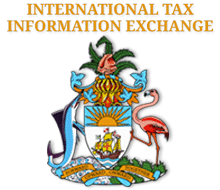| Source: Date: Updated: |
About FATCA
Wednesday, June 10, 2015 Wednesday, June 10, 2015 |
 The Foreign Account Tax Compliance Act (FATCA) was added to the United States’ Internal Revenue Code and signed into law on March 2010 as a part of the US Hiring Initiatives to Restore Employment Act. The goal of FATCA is to deter tax evasion by imposing information reporting requirements on financial institutions throughout the world with respect to U.S persons with accounts at those institutions. Financial institutions that do not comply with the FATCA requirements will be deemed “non-Participating Foreign Financial Institutions” and will face a 30% withholding tax on all of their U.S source payments.
The Foreign Account Tax Compliance Act (FATCA) was added to the United States’ Internal Revenue Code and signed into law on March 2010 as a part of the US Hiring Initiatives to Restore Employment Act. The goal of FATCA is to deter tax evasion by imposing information reporting requirements on financial institutions throughout the world with respect to U.S persons with accounts at those institutions. Financial institutions that do not comply with the FATCA requirements will be deemed “non-Participating Foreign Financial Institutions” and will face a 30% withholding tax on all of their U.S source payments.
In order to facilitate the reporting requirements, the Government of The Bahamas entered into an inter-governmental agreement (IGA) with the United States that details what, when and how information is to be exchanged.
Before entering the IGA, The Government of The Bahamas sought private sector input in the form of a FATCA working group that comprised a broad cross section of industry representatives. This was done to ensure the creation of policy that supports the growth, strength and sustainability of the financial sector. The Group was expanded to include regulators and its work was extended to include participating in the development of the systems requirements and design solutions. Members of the Working Group include representatives of Regulators such as the Central Bank and industry bodies such as Bahamas Association of Compliance Officers (BACO) and Bahamas Financial Services Board (BFSB).
This is an excerpt from About FATCA as it appeared on June 10, 2015. For updates or to read the current version of this post in its entirety, please click here.
Continue reading this post >










